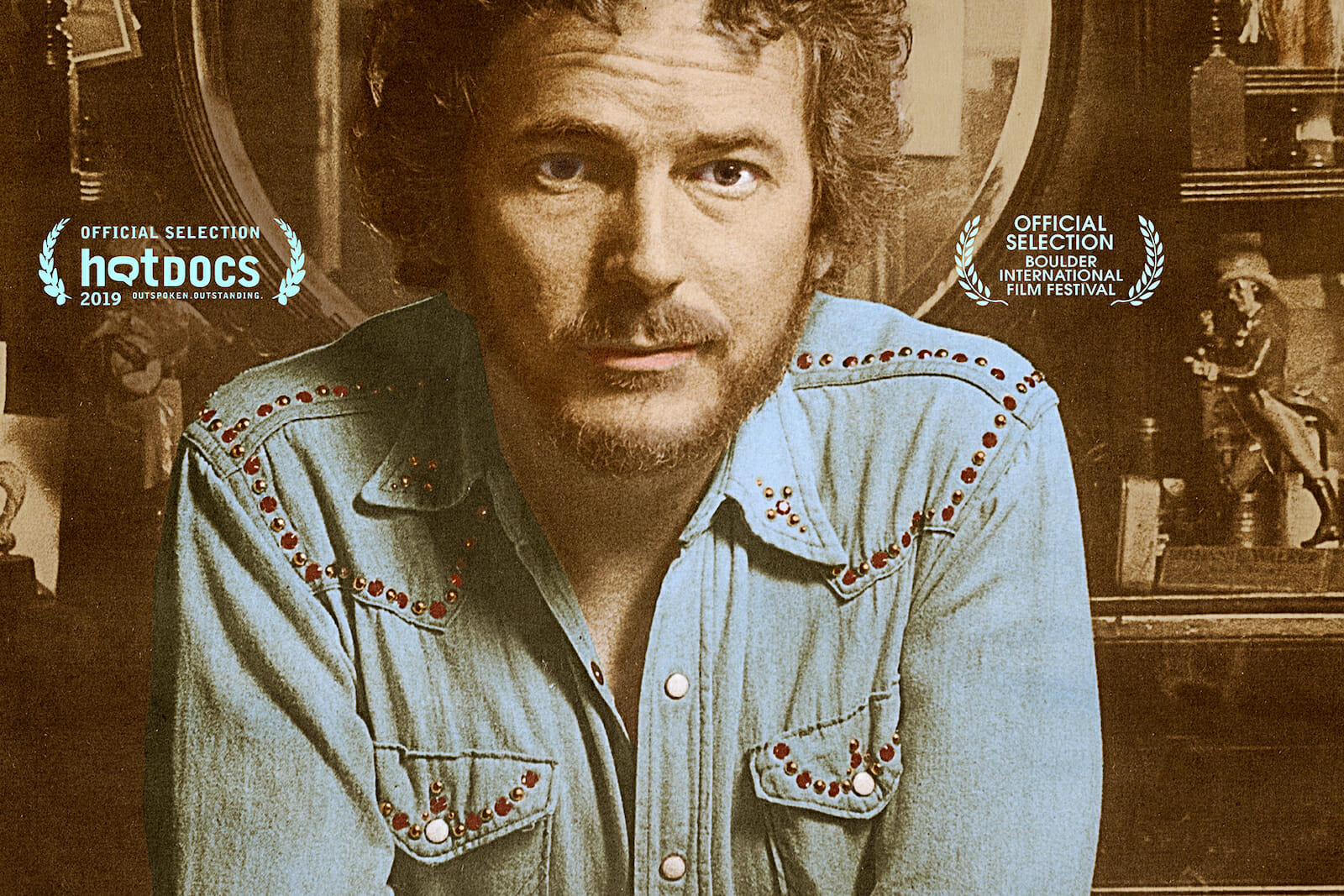
‘Gordon Lightfoot: If You Could Read My Mind’ Review
We realize very quickly that octogenarian Gordon Lightfoot isn’t about to cater to co-documentarians Martha Kehoe and Joan Tosoni, or establish a new reputation as being a sweetheart at this stage of life. Instead, he is filmed with his third wife Kim, watching clips of young Gord singing “(That’s What You Get) For Loving Me”. Despite his singing it with Johnny Cash, or having the song covered by Peter, Paul and Mary, Waylon Jennings, and many others, Lightfoot cringes and says. “I hate that song.” That’s what we get here – a man who speaks directly about his regrets, yet one who is appreciative of his life.
Lightfoot is thought of as Canadian Royalty, and is often referred to as the best ever Canadian singer-songwriter. He certainly played a key role in the popularity of folk music in the 1960s and we hear about his influence from many important Canadian musicians, including Geddy Lee, Sarah MacLachlan, Tom Cochrane, Ronnie Hawkins, Burton Cummings, and Anne Murray. For some inexplicable reason, the filmmakers include an interview with actor Alec Baldwin, who is neither Canadian, nor a musician – though at least he does seem to be a fan of Gordon Lightfoot.
The profile skips over much of his personal life to focus on the music. In fact, initially, it seems like Gord is going to walk us through his songbook, one by one. With “Early Morning Rain,” we learn it was not only a hit for Lightfoot, but covered by others such as Judy Collins, Elvis Presley, Neil Young, and even Ian and Sylvia (a successful Canadian folk duo). It’s also at this point when Burton Cummings explains that it was Lightfoot’s songs that inspired The Guess Who to write their own songs. We also see a clip of a young Lightfoot being interviewed by an even younger DJ named Alex Trebek!
Anne Murray and Sarah MacLachlan discuss “Song for a Winter’s Night,” and Lightfoot explains how he isolates to write songs …and he “waters” his guitars (something that makes more sense seeing than reading). Gordon tells the story of how he quit a promising career in banking to take a chance on performing, and he relates how growing up in the country helped him when he moved to the city. He also tells the fascinating “behind the scenes” story of how the record company changed the name of his first album after “If You Could Read My Mind” became a hit on the radio. By the way, that song has been recorded by a slew of artists – so many that the filmmakers offer up a slide show to make the point.
Photographs give us a taste of some of Lightfoot’s infamous parties attended by various celebrities. It was this partying lifestyle that led to drugs and alcohol abuse, as well as his weight gain. Lightfoot talks about his 3-year affair/relationship with Cathy Evelyn Smith, a name you might recognize as the woman who injected John Belushi with the lethal “speedball” that killed him. It was his severe jealousy over Ms. Smith that led Lightfoot to write his biggest U.S. hit “Sundown”. There is also an entire segment on Bob Dylan, and how much respect each of the songwriters had/have for each other.
Yet another “behind-the-scenes” moment occurs when one of Lightfoot’s band members recollects the time they recorded “The Wreck of the Edmund Fitzgerald”. They had never even rehearsed the song, and yet it was the first take in the studio that ended up being the hit version. Also included is a segment where Lightfoot reminisces about his childhood in Orillia, and we get a brief clip of his mom and dad. Even more shocking is the included recording of Lightfoot as a kid, singing with the church choir. The high pitched soprano voice bears little resemblance to the soothing tones of an older Gordon.
As a poet-singer-songwriter, few have been better or had more success than Gordon Lightfoot. The film skims over much of his personal life and his severe health issue in 2002, but focusing on the music is what his fans want – and it’s a treasure trove of early performances, clips, and photographs. He’s now 81-years old, and the filmmakers don’t shy away from contrasting his singing voice on “If You Could Read My Mind” with a ‘then and now’ edit. Lightfoot admits to regrets, and also states “I appreciate having been alive.” Still sporting that renowned attitude, he undoubtedly enjoys hearing Diana Krall and Sara MacLachlan open the film with the titular song. A Canadian national hero indeed. As a bonus, we Southerners finally learn the meaning of “Gitche Gumee.”
Gordon Lightfoot: If You Could Read My Mind is available on virtual cinemas.
